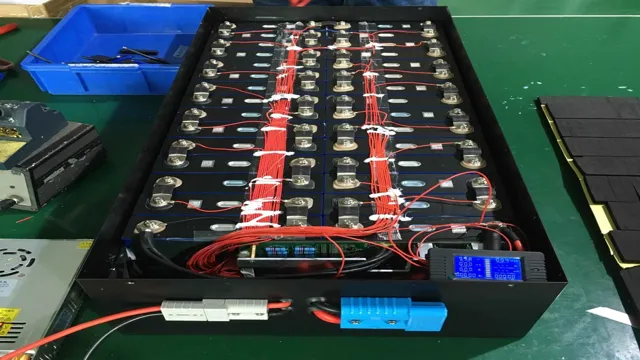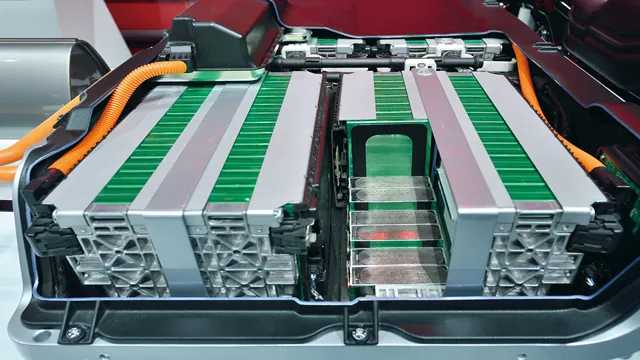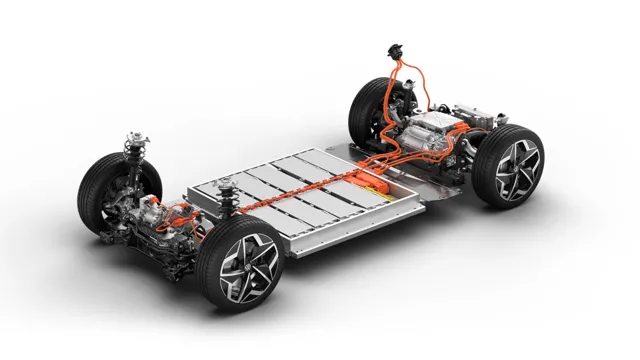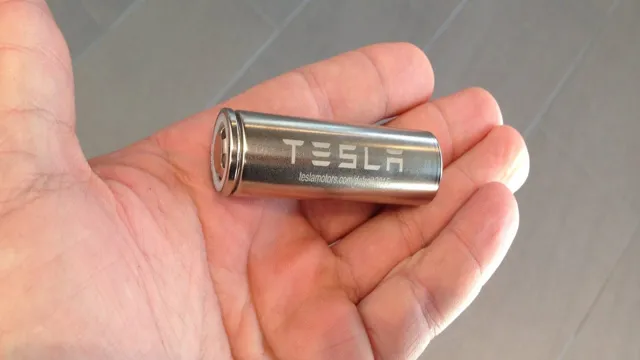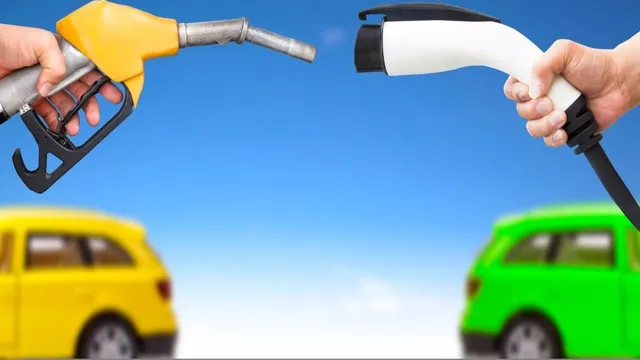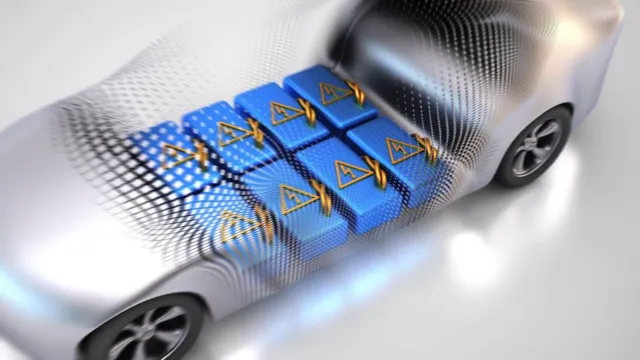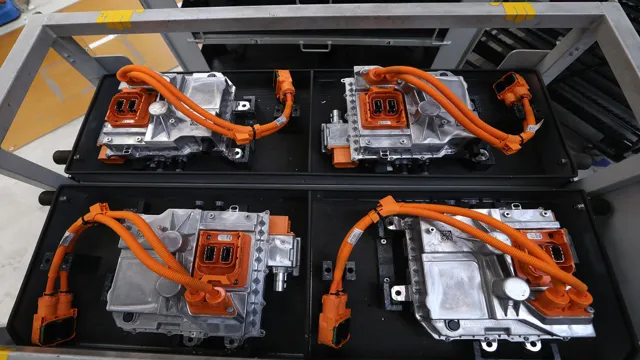Revving Up Your Ride: The Ultimate Guide to Electric Car Conversion with Lithium Batteries
Electric cars are quickly gaining popularity, and for good reason. They offer a more sustainable alternative to traditional gas-guzzlers, and with advancements in technology, they are becoming more affordable and accessible to everyday drivers. However, one of the biggest drawbacks to electric cars is their limited range and the need for frequent charging.
This is where lithium batteries come in, offering a way to convert your gas-powered car into an electric vehicle, with the added advantage of increased range and efficiency. But what exactly is an electric car conversion, and how do lithium batteries factor into the equation? Let’s explore.
Introduction
Electric car conversion batteries are an innovative and eco-friendly solution to reducing carbon emissions emitted by gasoline-powered cars. With the advancement of technology, lithium batteries have become the go-to option for electric car conversion. These types of batteries are lightweight, have a long lifespan, and can hold a high amount of charge.
By converting your car to electric power with lithium batteries, you can reduce your dependence on fossil fuels and help combat climate change. Not only will you be reducing your carbon footprint, but you can also save money on gas and maintenance costs in the long term. Electric car conversion batteries that use lithium technology are a great investment for anyone looking to drive a more environmentally conscious vehicle.
Why Lithium Batteries are the Best Choice for Electric Car Conversions
Lithium batteries are quickly becoming the go-to power source for electric car conversions. These batteries are a popular choice due to their high energy density, fast charging capabilities, and longer lifespan compared to traditional lead-acid batteries. They are also considerably lighter, which is crucial in electric car applications where weight affects the overall range and performance of the vehicle.
In addition, lithium batteries are more environmentally friendly and require less maintenance than their counterparts. All of these factors make lithium batteries the best choice for anyone looking to make their own electric vehicle.
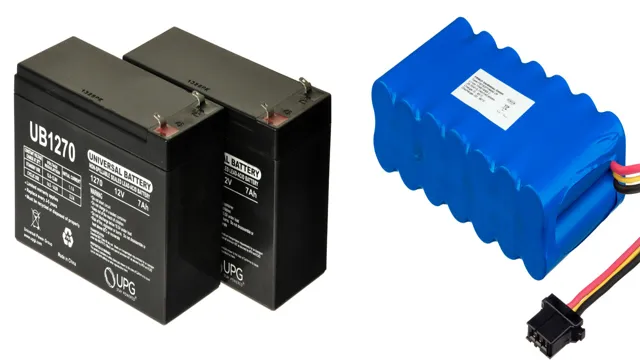
Advantages of Lithium Batteries over Traditional Lead-Acid Batteries
Lithium batteries have swiftly gained popularity over traditional lead-acid batteries in recent years due to their superior advantages. Not only are lithium batteries lightweight, but they also have a longer lifespan, require less maintenance, and charge faster. Unlike lead-acid batteries, lithium batteries can be charged at a much higher rate and can hold their charge for a more extended period.
This is because lithium batteries have a higher energy density, meaning more energy can be stored in a smaller space. These features make lithium-ion batteries perfect for use in electric cars, portable electronics, and even solar panel systems. It’s no wonder why lithium batteries are the preferred choice for those looking for a reliable and long-lasting power source.
Types of Lithium Batteries for Electric Car Conversions
If you’re considering converting your gas-powered car to an electric vehicle, it’s important to choose the right type of lithium battery. Lithium-ion batteries are the most common choice due to their high energy density, long lifespan, and low maintenance. However, they can be expensive and require a careful charging and discharging regimen to avoid damage and failure.
Lithium iron phosphate batteries are a more affordable, durable alternative that’s less prone to overheating or catching fire. They’re also easier to charge and maintain. Ultimately, the type of lithium battery you choose will depend on your budget, driving needs, and overall goals for your electric car conversion.
Lithium Cobalt Oxide (LiCoO2)
Lithium Cobalt Oxide If you are considering converting your vehicle to electric, you may be wondering what type of lithium batteries to use. One popular option is Lithium Cobalt Oxide, or LiCoO2 for short. This type of lithium battery is known for its high energy density and long cycle life.
However, it can also be expensive and have safety concerns due to its tendency to overheat and catch fire. It’s important to weigh the benefits and risks before choosing LiCoO2 for your electric car conversion project. Keep in mind that there are other types of lithium batteries available, such as Lithium Iron Phosphate and Lithium Manganese Oxide, each with their own set of advantages and disadvantages.
It’s best to research and consult with experts in the field to determine which type of lithium battery will meet your specific needs and budget.
Lithium Iron Phosphate (LiFePO4)
Lithium Iron Phosphate (LiFePO4) When it comes to choosing the right type of battery for your electric car conversion project, the options can be overwhelming. One popular choice that has gained traction in recent years is the Lithium Iron Phosphate (LiFePO4) battery. These batteries are widely used due to their high energy density and long battery life, making them a reliable choice for electric car conversions.
Unlike other lithium-ion batteries, the LiFePO4 battery is less prone to overheating and does not require frequent maintenance. They are also less likely to experience swelling or catching fire, making them a safer alternative. Additionally, LiFePO4 batteries have a longer lifespan compared to other batteries, providing a cost-effective solution for electric car conversions in the long run.
With its impressive performance, reliability, and safety features, the LiFePO4 battery is definitely worth considering for your electric car conversion project.
Lithium Nickel Cobalt Aluminum Oxide (NCA)
Lithium Nickel Cobalt Aluminum Oxide (NCA) is one of the many types of Lithium batteries used for electric car conversions. NCA batteries are well-known for their high energy density and long-lasting performance. These batteries contain nickel, cobalt, and aluminum, and their cathode is made of lithium nickel cobalt oxide.
The anode of NCA batteries is usually made of graphite or carbon-based materials. NCA batteries have a higher operating voltage, which means they can store more energy in a smaller volume. They are also more lightweight and can withstand high temperatures better than other batteries.
NCA batteries are the perfect choice for electric car conversions because they offer an excellent balance of energy density, power output, and safety. With its high energy density and long-lasting performance, NCA batteries are an ideal option for people who want to enjoy a practical and reliable mode of transportation.
Choosing the Right Lithium Battery for Your Electric Car Conversion
Switching from gasoline to an electric car is a smart and eco-friendly move, but choosing the right battery for your conversion is incredibly important. Lithium batteries are a popular choice due to their high energy density, long lifespan, and low maintenance. However, not all lithium batteries are created equal.
It’s crucial to consider factors like range, weight, size, and compatibility before making a purchase. Make sure to choose a battery that is specifically designed for electric car conversions and can provide enough power to handle your vehicle’s weight and distance requirements. Investing in a high-quality battery will help ensure a smooth and reliable driving experience, so it’s worth doing your research and shopping around for the best option.
Factors to Consider Before Choosing a Lithium Battery
When converting your car to electric, choosing the right lithium battery is crucial. There are several factors to consider before you make a decision. Firstly, the battery’s voltage and capacity need to be compatible with your motor and controller.
Secondly, you need to consider the battery’s chemistry, as each type has its pros and cons. For instance, Lithium Iron Phosphate (LiFePO4) batteries are durable and long-lasting, whereas Lithium Polymer (LiPo) batteries have a higher energy density but require more maintenance. Cost is also a significant factor to consider, as lithium batteries can be expensive, so you should weigh the benefits against the price.
Additionally, you should think about the battery’s weight and size, as it will have an impact on the car’s overall performance and handling. Finally, make sure the battery comes with a decent warranty to protect your investment. Considering all of these factors will help you pick the right lithium battery for your electric car conversion, ensuring that your vehicle is efficient and reliable on the road.
Top Lithium Battery Brands for Electric Car Conversion
Choosing the right lithium battery brand for your electric car conversion is essential to ensure maximum efficiency and longevity of your vehicle. Some of the top lithium battery brands in the market include Tesla, LG Chem, Panasonic, Samsung, and CATL. Tesla’s Powerwall and Powerpack are popular choices due to their high energy density and reliability.
LG Chem’s batteries are used by many automakers and have a modular design that makes them easy to install. Panasonic’s batteries are known for their high capacity and are used by Tesla for its Model S and Model X. Samsung’s batteries are also used by automakers and have a competitive price.
CATL is a newer player in the market but is quickly gaining popularity due to its high-quality batteries at an affordable price. It is important to consider factors such as energy density, capacity, and lifespan when choosing a lithium battery brand for your electric car conversion. Ultimately, choosing the right lithium battery can make all the difference in the performance of your electric car.
Conclusion
In conclusion, converting a traditional gas-guzzling vehicle into an electric car with lithium batteries is like giving your trusty old horse a shiny new set of wheels. It’s a modern-day upgrade that not only benefits the environment but can also save you some serious cash in the long run. Plus, with the added bonus of instant torque and a quiet ride, you’ll feel like you’re driving a spaceship rather than a clunky old car.
So, give your ride a battery-powered boost and join the electric revolution today!”
FAQs
What is an electric car conversion?
An electric car conversion involves transforming a traditional gasoline-powered vehicle into an electrically powered one.
Why should I convert my car to electric?
Converting your car to electric can result in significant cost savings on fuel and maintenance. It can also have environmental benefits as electric cars produce fewer emissions.
What kind of batteries are used in electric car conversions?
Lithium-ion batteries are commonly used in electric car conversions due to their high energy density and longer lifespan compared to other battery types.
How much does an electric car conversion typically cost?
The cost of an electric car conversion can vary greatly depending on the specific vehicle and components used, but it can range from several thousand to tens of thousands of dollars.
